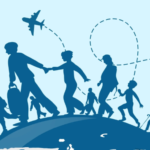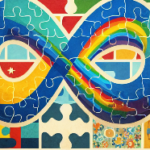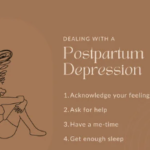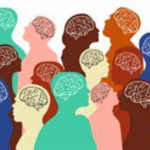In Africa, autism remains a largely misunderstood condition, often shrouded in stigma and misconceptions. If you are concerned about the plight of autistic adults in our communities, it’s crucial to understand the challenges they face in achieving employment and independence and the pivotal role of advocacy in fostering change. This article delves into these issues, offering insights and practical ways to support and empower autistic individuals.
The Employment Landscape for Autistic Adults
Imagine being an adult with autism in Africa, where the job market can be daunting even for those without disabilities. For many autistic individuals, securing employment is an uphill battle marked by significant barriers.
The lack of awareness about autism can lead to misunderstanding and discrimination from employers and colleagues alike. As a result, many qualified individuals remain unemployed or underemployed.
A 2018 report from the World Health Organization (WHO) highlighted that people with disabilities in Africa face higher unemployment rates compared to their non-disabled peers.
This is compounded for those with autism, who often require specialized support and understanding to thrive in a work environment. For example, an autistic individual might need a workplace that offers clear, structured tasks and minimal sensory distractions, but such accommodations are rarely available.
However, there is hope. Various initiatives across Africa are working to address these employment challenges. Some organizations are spearheading efforts to improve job opportunities for autistic individuals. Organizations like the “Engraced Ones”, founded in 2015 by Biboara Yinkere are making an impact in Nigeria.
With about 35 regular members across the country, according to an Aljazeera article, ‘How parents and teachers empower Nigeria’s special needs children’, They provide succor for each other and share resources on how to better care for their children and create awareness about developmental disorders.
Pathways to Independence
Independence is a fundamental aspect of adult life, but for many autistic individuals, it remains an elusive goal. Independence encompasses not just financial stability through employment but also the ability to live autonomously and make personal decisions.
Unfortunately, many autistic adults face obstacles such as inadequate access to resources and societal attitudes that view them through a lens of limitation rather than potential.
Consider the story of Chike, a young Nigerian with autism who struggled for years to find stable housing and financial independence. With the help of local support networks, he eventually secured a job and housing, but the path was fraught with challenges.
Chike’s experience underscores the need for more robust support systems that can assist autistic individuals in navigating the complexities of independent living.
Community-based support services play a critical role in fostering independence. In South Africa, organizations like Autism South Africa offer resources and programs designed to enhance independent living skills.
They provide everything from life skills training to support with daily living tasks, helping autistic individuals build the confidence and capabilities needed to lead independent lives.
Additionally, educational programs that focus on practical life skills are essential. By integrating these skills into curricula and offering specialized training, we can better prepare autistic adults for the demands of independent living.
Programs that focus on financial literacy, self-care, and social skills can make a significant difference in helping individuals manage their own lives effectively.
The Role of Advocacy and Support Networks
Advocacy is a powerful tool for driving change and improving the lives of autistic individuals. It involves raising awareness, influencing policy, and fostering supportive environments. In Africa, where resources and support structures are often limited, advocacy plays an especially crucial role in shaping a more inclusive society.
Organizations such as the Autism Society of Kenya and the Ghana Autism Awareness Organization are leading the charge in advocacy. They work tirelessly to educate the public, challenge stereotypes, and push for policies that support autistic individuals.
For example, advocacy efforts have led to the development of special education programs and improved access to healthcare services for those with autism.
Support networks are another vital component of advocacy. These networks can include family members, community leaders, healthcare professionals, and policymakers.
By working together, these groups can create a more supportive environment for autistic individuals. Effective advocacy requires collaboration and a shared commitment to fostering an inclusive society.
What Do We Do Next?
Now that you understand the key issues facing autistic adults in Africa, you might be wondering how you can help. The first step is to mobilize community support. Encourage local businesses and organizations to adopt inclusive practices, support advocacy groups, and participate in awareness campaigns.
Your involvement can make a tangible difference in creating a more accommodating environment for autistic individuals.
Policy recommendations also play a critical role in fostering change. Advocate for policies that promote equal employment opportunities, access to resources, and support for independent living. Engage with policymakers to push for reforms that address the specific needs of autistic adults.
Moreover, it’s essential to empower autistic voices in the conversation. Ensure that autistic individuals are involved in discussions and decision-making processes related to their lives. Their perspectives and experiences are invaluable in shaping effective and meaningful solutions.
Conclusion
As you reflect on the challenges and solutions outlined in this article, remember that empowering autistic adults in Africa requires a collective effort. By understanding their needs, supporting employment initiatives, fostering independence, and engaging in advocacy, you contribute to creating a more inclusive and supportive society. With continued commitment and collaboration, we can work towards a future where autistic individuals are recognized for their strengths and provided with the opportunities they deserve.
For more information on autism support and advocacy, visit the African Autism Network’s website or connect with local organizations dedicated to making a difference in the lives of autistic individuals. Your involvement can help pave the way for a brighter, more inclusive future.



















